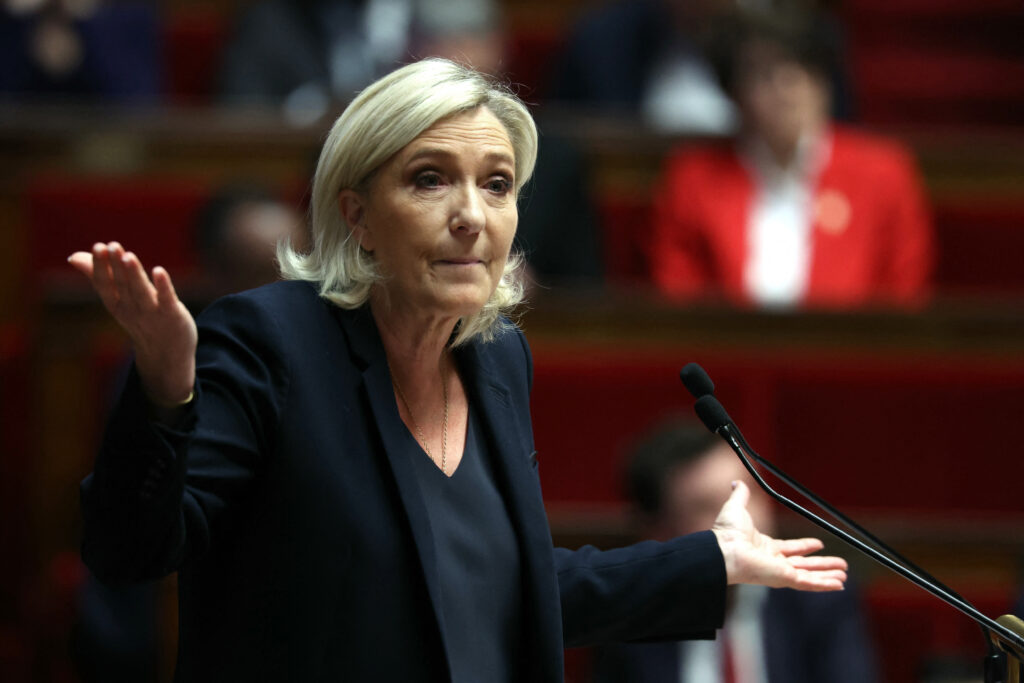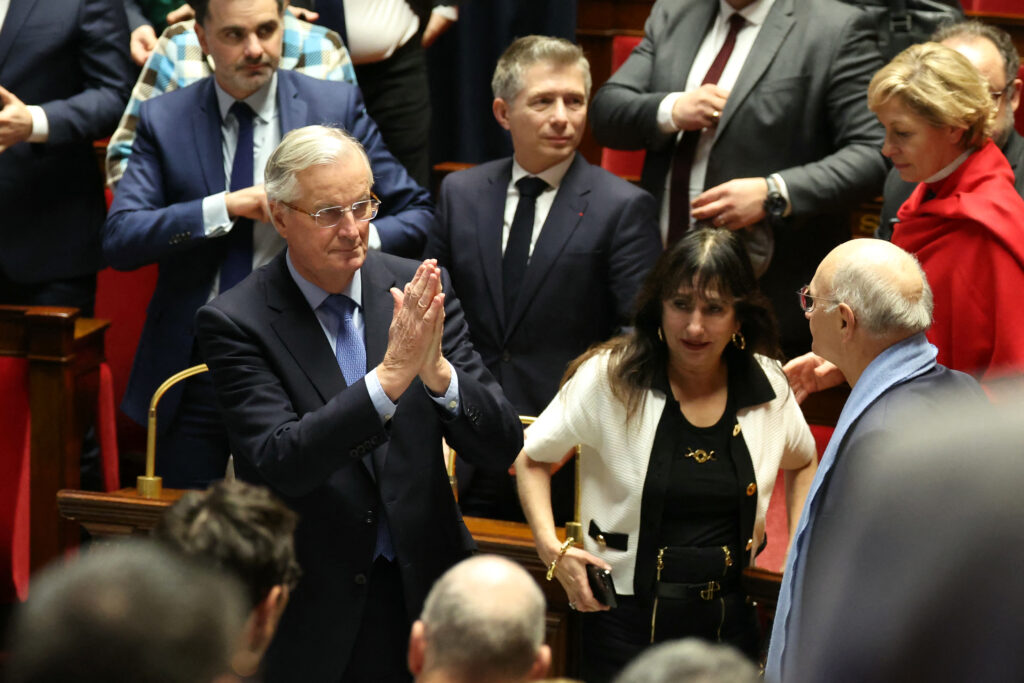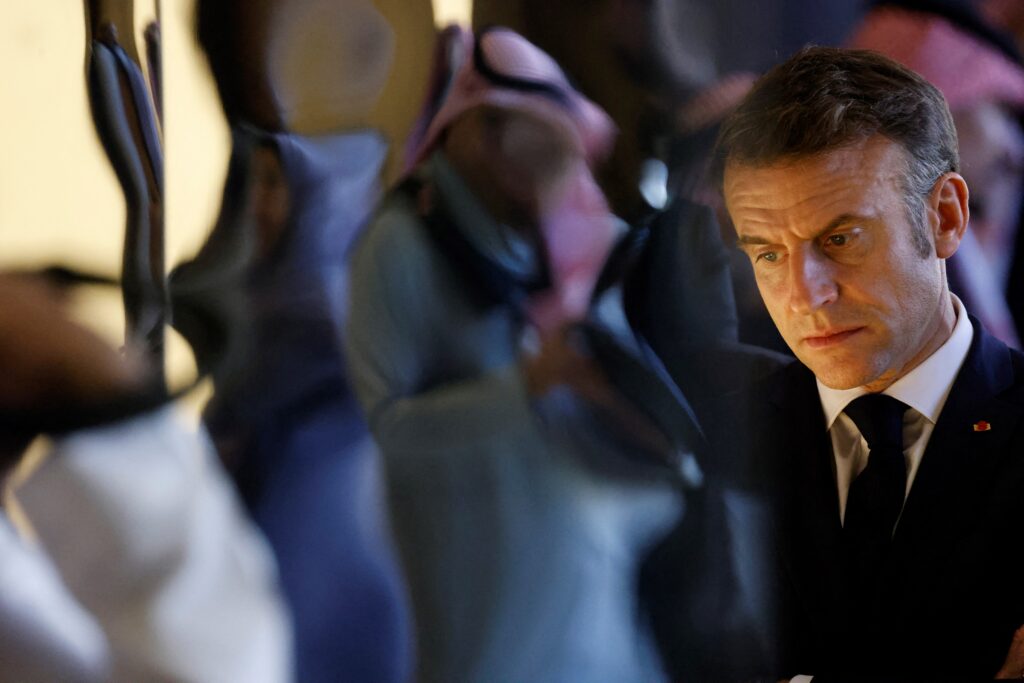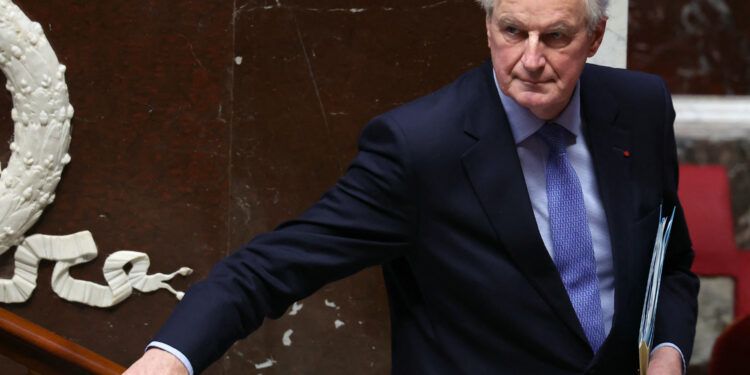Brussels – France is again without a government. For the second time in less than three months. This evening (Dec. 4), deputies from the extreme right and center-left oppositions voted no confidence in Michel Barnier, who has thus become the prime minister with the shortest career in the Fifth Republic.
The former EU negotiator for Brexit fell over the 2025 budget proposal, which the House deemed too austere despite last-minute concessions by the premier. President Emmanuel Macron will now have to get the country out of this unprecedented political impasse, resolving the severe political-institutional crisis that he helped ignite and, above all, preventing Paris – whose public accounts are already under scrutiny in Brussels – from entering provisional budgetary measures next month.
House votes no-confidence
In the end, there were 331 votes cast in favor of the motion of censure for Michel Barnier’s government put forward by the Nouveau Front Populaire (NFP), the united front of the left that, albeit with difficulty, holds together the different souls of transalpine progressivism from the Socialists of Raphaël Glucksmann to the radical left of Jean-Luc Mélenchon, leader of La France Insoumise (LFI), via ecologists and communists. It was a highly expected result that appeared inevitable after Barnier decided to activate Article 49.3 of the Constitution yesterday to approve the 2025 budget, circumventing the House vote.
The no-confidence received the crucial support of the Rassemblement National (RN) of Marine Le Pen, which, with its 124 elected members in the Assemblée Nationale, allowed the motion filed yesterday by the NFP parliamentary group to pass the fatal 288 ‘yes’ threshold — that is, the absolute half of the 575 members of the hemicycle (it would be 577 but two seats are vacant). It was, therefore, unnecessary to hold a vote on the parallel motion tabled by the RN, which the NFP would not have supported.

All Against Macron
Under the Paris sky, as expected, politics is in turmoil. Barnier’s dismissal is mostly a loud and clear signal to the head of state: to his policies, which both parties increasingly challenge and the electorate (starting with the much-hated pension reform), and to his top-down and almost personalistic management of power.
“Macron must go” is the stance of the radical left, as LFI group leader in the Assembly Mathilde Panot stated in the heat of the moment. For Insoumis leader Mélenchon, the premier’s censure was “inevitable” and “even with a Barnier every three months, Macron won’t last three years.” The reference is to the next presidential elections, scheduled for the spring of 2027: a date that the NFP’s first force (71 elected) now wants to anticipate, calling for the resignation of monsieur le Président.
The inevitable censure has taken place. Even with a Barnier every three months, Macron won’t last three years.
– Jean-Luc Mélenchon (@JLMelenchon) December 4, 2024
Le Pen, RN group leader in the Assembly, shares this opinion, albeit in more diplomatic tones, urging the president of the Republic to step aside: “It is up to Emmanuel Macron himself to conclude whether he can remain president of the Republic or not,” she said before the polls opened. “It is up to his reasoning to determine whether he can ignore the evidence of a massive popular challenge that, in his case, I believe is final,” she added.
A recent survey confirmed her words and the profound polarization of French society, with 62 percent of citizens saying they would like to see the current president take a step back: a percentage that rises to 87 for Rassemblement voters and even 91 for Insoumis.
The failure of the Macronist strategy
The outcome of today’s vote consigns to the history of the Cinquième République the shortest-lived premier: nearly three months from nomination, on Sept. 5, to parliamentary no-confidence (ironically, this record belongs to the oldest man ever to hold this office, at 73). Before him, the Socialist Bernard Cazeneuve, head of the transalpine executive for just over five months at the turn of 2016 and 2017, held this negative record.
To the former European commissioner and EU negotiator for Brexit, the Elysée Palace tenant had entrusted the difficult task of reconstructing the deep rifts that had opened in recent months in the French political fabric. Fractures that Macron personally helped create, surprisingly calling early elections after the débâcle of the European elections in June, only to (critics say) ignore their results, discarding the NFP’s premier candidate and sending in Barnier to lead a makeshift minority executive, comprising his centrist faction, which came second at the polls, with the Neo-Gaullist conservatives not explicitly aligned with the far-right Le Pen movement — i.e. what remained of the Républicains after the breakaway by former leader Éric Ciotti (who allied with the RN and was therefore ousted by his former party).

Accounts in the red
However, Barnier’s main task was to get the ever more fragmented and contentious Assemblée to approve the 2025 budget or face a provisional budget in January. The crisis spiraled over this as the hemicycle considered the government’s proposed budget – 60 billion euros between cuts in public spending (40 billion) and tax increases (20 billion) – overly austere.
All this comes at a time when Brussels initiated excessive deficit infringement proceedings last summer against Paris, whose deficit/GDP ratio risks exceeding 6 percent compared with European spending constraints that set the “acceptable” deficit threshold at 3 percent of gross domestic product. France will have to convince its European partners and international investors that it can repay its debt, which, due to post-pandemic recovery investments, has grown to over the 130 percent of GDP threshold (it currently stands at over 133 percent). In the past few hours, financial markets considered Greek government debt securities more attractive than French ones, while the spread with German Bunds reached an all-time high since the euro crisis in 2012.
The uncertain future
The Elysée Palace announced that Macron (who hastily returned from Saudi Arabia, where he had been to strengthen trade relations with Riyadh) will address the nation tomorrow evening while in these hours, the resigning premier is on his way to the presidential residence to tender his resignation to in the head of state. According to media reports, the president has already started fast-track consultations to appoint Barnier’s successor by the weekend to avoid presenting a weak image of France to US President-elect Donald Trump, who will attend the reopening of the Notre Dame Cathedral on Saturday after the 2019 fire.

However, it is unclear what kind of profile could secure the support of a majority in the hemicycle, where the three main political blocs–NFP, RN, and Liberal-Macronist center–are on virtually irreconcilable positions, and none of them has the numbers to govern alone. One option could be that of a technical government: this would be unprecedented for France, and its practical feasibility remains to be seen, given the numbers in the Assembly.
Even so, Macron’s resignation and the convening of early presidential elections would risk not solving everything. Politically, such an outcome would allow the new head of state to seek a fresh start after the end of Macronism, but since dissolving parliament is only possible once every 12 months (so it’s off the table until at least June 2025), whoever takes office at the Elysee Palace will have to deal with the wild balkanization of the Assembly.
English version by the Translation Service of Withub





